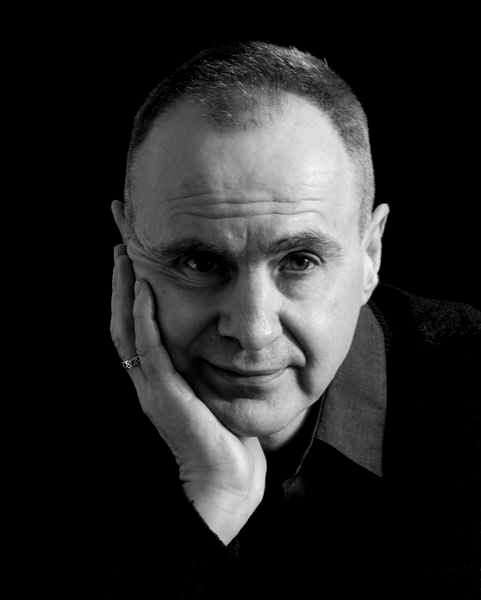
It gives me great pleasure to welcome James Morgan-Jones onto the website today. James originally trained as an actor at the Guildhall School of Music and Drama and worked for several years in the theatre. He began writing in earnest in 2008. His work is published by Wordcatcher Publishing.
Alex: Tell us a bit about yourself, James.
James: I grew up on the borders of Essex and East London - a sort of no man's land, really. It was and is a place haunted by its obliterated past - this was due to rapid, mass suburbanisation with no thought after WW2 - and I realise now how much this sense of defiled place and of a lost identity smouldering just beneath the surface of what is perceptible informs my work. I started writing when I was about twelve. They were derivative stories, usually inspired by things I'd seen on television, though not always. I do remember an RE teacher at school who told us if we ever wanted to write fiction we could do worse than look to the Bible for inspiration - he meant, I think, for its wealth of dramatic, highly-visualised tales - and he was right. At the time, it set me off on one particular 'epic'. The thing was that I always finished the stories - important training for any writer. I carried on writing throughout my teens and young adulthood but lapsed for a while after training as an actor, when other demands took over. I spent several years working in the theatre. I came back to the craft, as a serious writer, some years later.
Alex: Tell us a bit about yourself, James.
James: I grew up on the borders of Essex and East London - a sort of no man's land, really. It was and is a place haunted by its obliterated past - this was due to rapid, mass suburbanisation with no thought after WW2 - and I realise now how much this sense of defiled place and of a lost identity smouldering just beneath the surface of what is perceptible informs my work. I started writing when I was about twelve. They were derivative stories, usually inspired by things I'd seen on television, though not always. I do remember an RE teacher at school who told us if we ever wanted to write fiction we could do worse than look to the Bible for inspiration - he meant, I think, for its wealth of dramatic, highly-visualised tales - and he was right. At the time, it set me off on one particular 'epic'. The thing was that I always finished the stories - important training for any writer. I carried on writing throughout my teens and young adulthood but lapsed for a while after training as an actor, when other demands took over. I spent several years working in the theatre. I came back to the craft, as a serious writer, some years later.
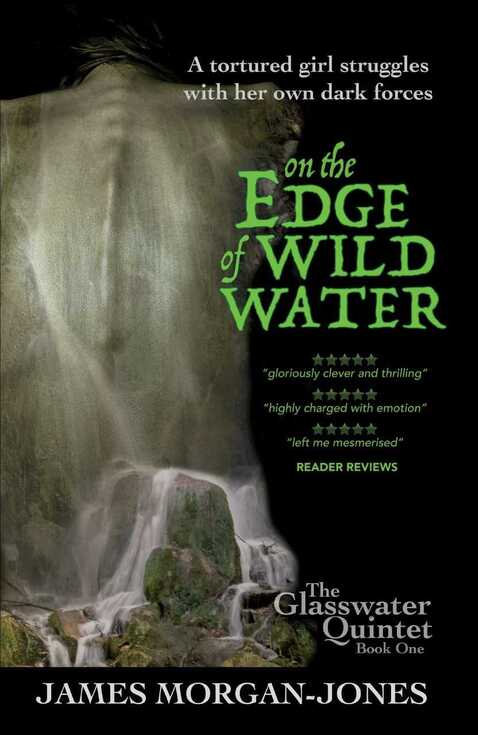
Alex: How would you describe your writing, and are there particular themes that you like to explore?
James: That's difficult. The novels form - or will eventually form - a quintet, with the overarching title of The Glasswater Quintet. They take an anti-clockwise trajectory, beginning in the 2000s, before rewinding to the 1970s, then back further still to the outset of WW2, before going forward again to the 1990s, and finally to sometime about now. They are linked by place and characters, though each novel works as a standalone book very well, I think. The retro-circular nature of the series means that characters grow younger, then age once more - everything is a shifting collage, nothing stands still. Time is very much an endlessly spinning wheel. I suppose the books could be described as psychological/supernatural mystery-thrillers. I realise that's a bit long-winded, but they do have facets of several genres. The supernatural element of them I take very seriously. It has nothing to do with ghoulies and ghosties, or people turning into vampires; it's very much about a haunting of the mind and the impact that the supernatural has on the emotional life of the character(s), and on their unfolding fates as the narrative progresses. I would say that the books are intelligent but accessible, also dramatic and emotional. They often have an historical dimension (see below), and have been described as 'eco-sensitive', which, as labels go, is one I love. They explore the possibility of the transcendental in a modern world powered by relentless materialism and the forces of science. But the characters are, to all intents and purposes, ordinary people leading working lives with whom I hope many readers will empathise. It just so happens that they have extraordinary experiences, which must be reconciled with the physical demands of the here and now. My short stories are mixed; some have a supernatural slant, others a period flavour. There's also black comedy, modern myth and domestic drama. Overall, I would say that my style is lyrical, atmospheric and evocative.
James: That's difficult. The novels form - or will eventually form - a quintet, with the overarching title of The Glasswater Quintet. They take an anti-clockwise trajectory, beginning in the 2000s, before rewinding to the 1970s, then back further still to the outset of WW2, before going forward again to the 1990s, and finally to sometime about now. They are linked by place and characters, though each novel works as a standalone book very well, I think. The retro-circular nature of the series means that characters grow younger, then age once more - everything is a shifting collage, nothing stands still. Time is very much an endlessly spinning wheel. I suppose the books could be described as psychological/supernatural mystery-thrillers. I realise that's a bit long-winded, but they do have facets of several genres. The supernatural element of them I take very seriously. It has nothing to do with ghoulies and ghosties, or people turning into vampires; it's very much about a haunting of the mind and the impact that the supernatural has on the emotional life of the character(s), and on their unfolding fates as the narrative progresses. I would say that the books are intelligent but accessible, also dramatic and emotional. They often have an historical dimension (see below), and have been described as 'eco-sensitive', which, as labels go, is one I love. They explore the possibility of the transcendental in a modern world powered by relentless materialism and the forces of science. But the characters are, to all intents and purposes, ordinary people leading working lives with whom I hope many readers will empathise. It just so happens that they have extraordinary experiences, which must be reconciled with the physical demands of the here and now. My short stories are mixed; some have a supernatural slant, others a period flavour. There's also black comedy, modern myth and domestic drama. Overall, I would say that my style is lyrical, atmospheric and evocative.
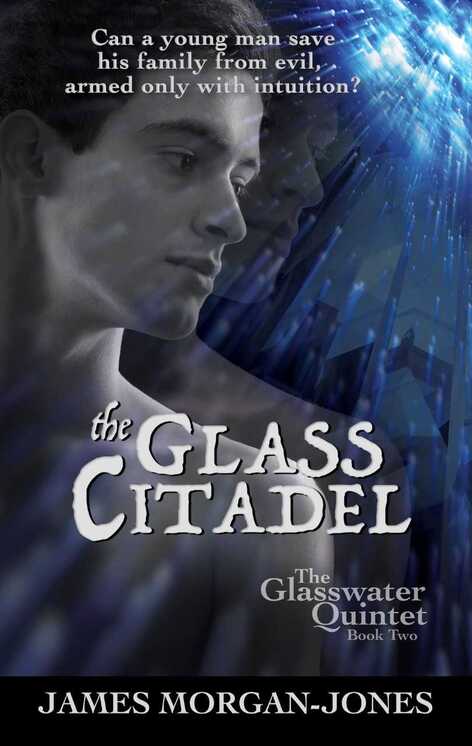
Alex: Are you a writer that plans a detailed synopsis or do you set out with a vague idea and let the story unfold as you write?
James: The latter, definitely. I couldn't work everything out in minute detail beforehand. I think I'd find that stultifying. I do know the central premise of the story in advance, and have some notion of the arc of the narrative; ie, where it's set, how it's narrated (first or third person, or both), the principal characters, elements of the plot I want to include etc. I do usually have a clear idea of the denouement. There is always a dramatic and fast-moving climax to the books. But how I get to that point is an unknown. It really is a process of discovery, like feeling your way through a dark labyrinth with only a faint light.
Alex: Tell us about your latest novel.
James: The fourth book in The Glasswater Quintet series was published in November 2020. It's called Eye of the Rushes. In the books I use mainly the places I know best: that is, West Wales and the marshy edge-lands of Essex/East London. Eye of the Rushes is the only one of the quintet to be set entirely on the borders of Essex and London. It has a dual narrative: one set in the 1990s, the other exactly a hundred years earlier in the 1890s. The story centres around a Georgian manor house (which does actually exist) and the historic, unsolved murder of a policeman in its grounds. In the modern narrative, a film is being made at the house itself, which attempts to unravel the mystery. The supernatural slant comes not only from lingering presences in the house, but from certain characters past and present who are able to 'see' colours - an ability, which proves to be both an electrifying gift and a terrible burden. I have just begun work on the final novel in the quintet - The Ice Chandelier.
James: The latter, definitely. I couldn't work everything out in minute detail beforehand. I think I'd find that stultifying. I do know the central premise of the story in advance, and have some notion of the arc of the narrative; ie, where it's set, how it's narrated (first or third person, or both), the principal characters, elements of the plot I want to include etc. I do usually have a clear idea of the denouement. There is always a dramatic and fast-moving climax to the books. But how I get to that point is an unknown. It really is a process of discovery, like feeling your way through a dark labyrinth with only a faint light.
Alex: Tell us about your latest novel.
James: The fourth book in The Glasswater Quintet series was published in November 2020. It's called Eye of the Rushes. In the books I use mainly the places I know best: that is, West Wales and the marshy edge-lands of Essex/East London. Eye of the Rushes is the only one of the quintet to be set entirely on the borders of Essex and London. It has a dual narrative: one set in the 1990s, the other exactly a hundred years earlier in the 1890s. The story centres around a Georgian manor house (which does actually exist) and the historic, unsolved murder of a policeman in its grounds. In the modern narrative, a film is being made at the house itself, which attempts to unravel the mystery. The supernatural slant comes not only from lingering presences in the house, but from certain characters past and present who are able to 'see' colours - an ability, which proves to be both an electrifying gift and a terrible burden. I have just begun work on the final novel in the quintet - The Ice Chandelier.
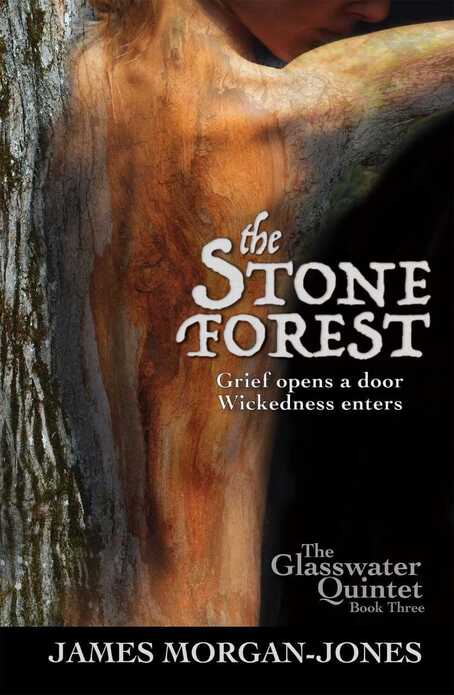
Alex: What was the first book you read?
James: We weren't a literary household. I can't remember being read to, and I was never introduced to classics like A A Milne or Beatrix Potter. I remember a teacher at school presenting us with a book-strewn table from which we were instructed to choose. I can't recall which title it was, but the first book I read was almost certainly an Enid Blyton. Of course, they were very formulaic, and horribly classist/sexist by today's 'correct' standards, but they were fun nonetheless and a great introduction to the thrill of storytelling. My discovery of the true art of writing occurred when I came across Alan Garner at about the age of thirteen - a different kettle of fish altogether.
Alex: How much research do you do and what does it usually entail?
James: I do a lot of research. Much of it is for historical detail, though this has to be used sparingly, otherwise there's a danger it becomes self-conscious and leaden. However, everything you discover seeps into the subconscious, and the more you know and understand about a period, the more convincing your authorial voice will be. It's important not to be dry when writing about the past. You must be able to visualise it in your imagination, so that it comes through. For instance, in the first of the quintet, On the Edge of Wild Water, in which there is also a dual past/present narrative, I delved into fascinating accounts of the notorious Rebecca riots in West Wales in the 1840s, when men disguised themselves as women in order to conceal their identities and rode about on horseback challenging repressive authority by destroying tollgates. It led to a terrible rout at Carmarthen workhouse. It's extraordinary stuff and I loved the challenge of bringing the events to life. Aside from historical content, there's always research to be done on, say, finding out about a character's job, or on technical details to flesh out the body of the plot. In Eye of the Rushes, I wanted to depict the process of film-making and so had to call on people who had worked in that industry and who, luckily for me, were able to give me a great deal of information.
James: We weren't a literary household. I can't remember being read to, and I was never introduced to classics like A A Milne or Beatrix Potter. I remember a teacher at school presenting us with a book-strewn table from which we were instructed to choose. I can't recall which title it was, but the first book I read was almost certainly an Enid Blyton. Of course, they were very formulaic, and horribly classist/sexist by today's 'correct' standards, but they were fun nonetheless and a great introduction to the thrill of storytelling. My discovery of the true art of writing occurred when I came across Alan Garner at about the age of thirteen - a different kettle of fish altogether.
Alex: How much research do you do and what does it usually entail?
James: I do a lot of research. Much of it is for historical detail, though this has to be used sparingly, otherwise there's a danger it becomes self-conscious and leaden. However, everything you discover seeps into the subconscious, and the more you know and understand about a period, the more convincing your authorial voice will be. It's important not to be dry when writing about the past. You must be able to visualise it in your imagination, so that it comes through. For instance, in the first of the quintet, On the Edge of Wild Water, in which there is also a dual past/present narrative, I delved into fascinating accounts of the notorious Rebecca riots in West Wales in the 1840s, when men disguised themselves as women in order to conceal their identities and rode about on horseback challenging repressive authority by destroying tollgates. It led to a terrible rout at Carmarthen workhouse. It's extraordinary stuff and I loved the challenge of bringing the events to life. Aside from historical content, there's always research to be done on, say, finding out about a character's job, or on technical details to flesh out the body of the plot. In Eye of the Rushes, I wanted to depict the process of film-making and so had to call on people who had worked in that industry and who, luckily for me, were able to give me a great deal of information.
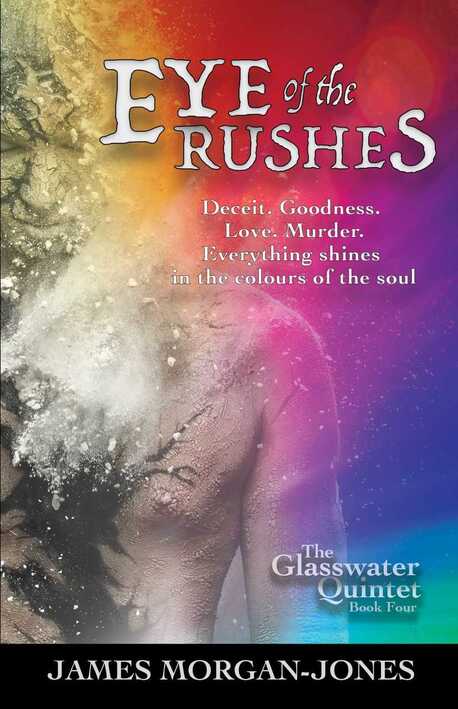
Alex: I hadn't heard of the Rebecca Riots before now. How extraordinary! Do you ever base your characters on people you have encountered in real life?
James: I'm afraid I do. Or it might be something that has happened to them, a particular incident, around which a purely fictional narrative is woven. I would say that's especially true of my short stories. I do let people know (usually!) that I would like to use something, to make sure it's all right before it goes anywhere. A major example of borrowing from life occurs in The Glass Citadel, the second of The Glasswater Quintet. Back in the 1960s, my aunt ran a pub on the Essex/London borders. The enterprise went pear-shaped due to my uncle's problems with alcohol and gambling. But there were details of her experience that were fabulous and dramatic. I interviewed her to glean as much as I could and she was able to read the first section of the book, which is where the depiction of the pub features. Of course, it is a melding of fact and fiction as always, but I think she approved. She was pleased, I think, to see her memories channelled into something creative. Sadly, she died shortly before the book was eventually published.
Alex: Which was the last book you read that blew you away?
James: That's tricky. For something to have that effect on me I need to be moved quite profoundly. Few books do that, though that doesn't mean that they aren't superbly written, very impressive and a great achievement on a different level. We do suffer to an extent now, I think, from the modern insistence on detachment and irony in writing. Of course, you always have to maintain a certain objectivity as a writer, but that doesn't mean you should be afraid to work on an emotional level. It's all about control and how well you handle it. Going way back, my reading of D H Lawrence at A level was epiphanic and life-changing for me - see below.
James: I'm afraid I do. Or it might be something that has happened to them, a particular incident, around which a purely fictional narrative is woven. I would say that's especially true of my short stories. I do let people know (usually!) that I would like to use something, to make sure it's all right before it goes anywhere. A major example of borrowing from life occurs in The Glass Citadel, the second of The Glasswater Quintet. Back in the 1960s, my aunt ran a pub on the Essex/London borders. The enterprise went pear-shaped due to my uncle's problems with alcohol and gambling. But there were details of her experience that were fabulous and dramatic. I interviewed her to glean as much as I could and she was able to read the first section of the book, which is where the depiction of the pub features. Of course, it is a melding of fact and fiction as always, but I think she approved. She was pleased, I think, to see her memories channelled into something creative. Sadly, she died shortly before the book was eventually published.
Alex: Which was the last book you read that blew you away?
James: That's tricky. For something to have that effect on me I need to be moved quite profoundly. Few books do that, though that doesn't mean that they aren't superbly written, very impressive and a great achievement on a different level. We do suffer to an extent now, I think, from the modern insistence on detachment and irony in writing. Of course, you always have to maintain a certain objectivity as a writer, but that doesn't mean you should be afraid to work on an emotional level. It's all about control and how well you handle it. Going way back, my reading of D H Lawrence at A level was epiphanic and life-changing for me - see below.
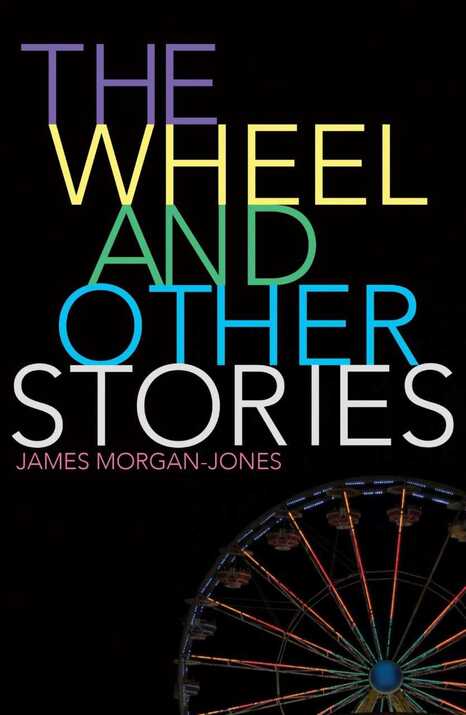
Alex: How do you market your books?
James: By all the usual channels of social media and a good website. I try also to do as many interviews and/or appearances and readings (when we are allowed to!) as I can. I enjoy reading to an audience. It takes me back to acting days.
Alex: What are your interests aside from writing? And what do you do to unwind?
James: Reading, of course, but also music and theatre. The latter I've missed enormously since the pandemic. Thankfully, the world of theatre is reviving. I'm lucky enough also to live in a rural area. I have a large garden with a stream running through it - it's a little microcosm, and there's always plenty to do in maintaining it. There's a bit of woodland, too. The garden is both a source of endless fascination and of inspiration. I like to think I have brought the setting to life in the quintet, particularly the first in the series, On the Edge of Wild Water.
James: By all the usual channels of social media and a good website. I try also to do as many interviews and/or appearances and readings (when we are allowed to!) as I can. I enjoy reading to an audience. It takes me back to acting days.
Alex: What are your interests aside from writing? And what do you do to unwind?
James: Reading, of course, but also music and theatre. The latter I've missed enormously since the pandemic. Thankfully, the world of theatre is reviving. I'm lucky enough also to live in a rural area. I have a large garden with a stream running through it - it's a little microcosm, and there's always plenty to do in maintaining it. There's a bit of woodland, too. The garden is both a source of endless fascination and of inspiration. I like to think I have brought the setting to life in the quintet, particularly the first in the series, On the Edge of Wild Water.
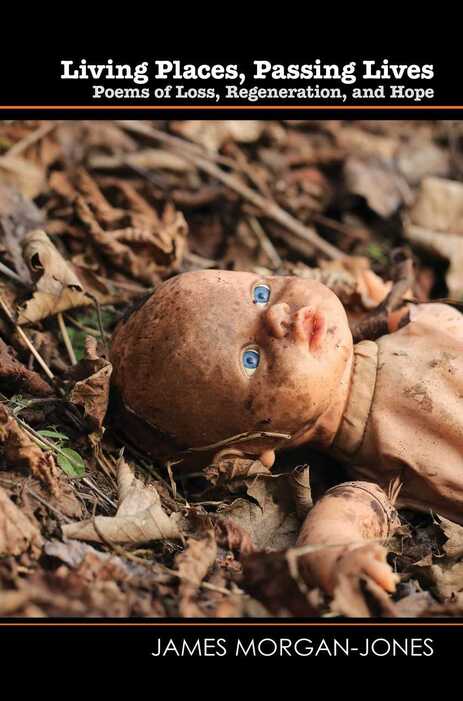
Alex: I do love the idea of a large garden with a stream running through it. How wonderful - we don't have many of those in North West London LOL! Which authors do you particularly admire and why?
James: I've mentioned Alan Garner and D H Lawrence. Garner writes ostensibly for children or young adults, but I think everyone knows his work is much more than that. He achieves a mythic grandeur in his writing, and touches on something beyond the material world which we can't quantify but somehow know to be true nonetheless. Quite how he achieves this is something of a miracle. Lawrence remains a challenging and fascinating writer. The vividness, immediacy and passion in his work is still startling. Most people are aware only of his novels, and perhaps short stories, but he was also a wonderful poet, a playwright, a travel writer and an essayist, as well as a mind-bogglingly prolific letter-writer - an extraordinary output for such a short life (he died at the age of forty-four). Along the way, I've also loved Daphne du Maurier for her wonderfully atmospheric and gripping story-telling. The way she handles the supernatural appeals to me very much. I love some of her short stories in particular, such as Don't Look Now and The Blue Lenses. Likewise, Shirley Jackson is a superb writer on the supernatural plane. I also admire Beryl Bainbridge for her quirky, spare, highly individual style and her sharp, dark humour. Her historic re-imaginings - Every Man for Himself (Titanic) and Master Georgie (Crimean War) in particular - are wonderful.
Another great writer is Paul Scott - sadly overlooked nowadays. I think The Raj Quartet is one of the great works of English Literature. His account in the third book - The Towers of Silence - of the elderly Barbie's descent into bewilderment and eventually madness moved me very deeply.
Alex: Thank you so much James for this incredibly thoughtful and thought-provoking response to my questions. It's very nice to hear Beryl Bainbridge's name mentioned. I had the very great pleasure of sitting next to her many years ago at an advertising awards do. Besides being a wonderful writer, she was a lovely person, and incredibly chatty and down to earth. Anyway, good luck with The Ice Chandelier. I look forward to seeing it in print.
James: Thank you, Alex. And thank you for inviting me.
James: I've mentioned Alan Garner and D H Lawrence. Garner writes ostensibly for children or young adults, but I think everyone knows his work is much more than that. He achieves a mythic grandeur in his writing, and touches on something beyond the material world which we can't quantify but somehow know to be true nonetheless. Quite how he achieves this is something of a miracle. Lawrence remains a challenging and fascinating writer. The vividness, immediacy and passion in his work is still startling. Most people are aware only of his novels, and perhaps short stories, but he was also a wonderful poet, a playwright, a travel writer and an essayist, as well as a mind-bogglingly prolific letter-writer - an extraordinary output for such a short life (he died at the age of forty-four). Along the way, I've also loved Daphne du Maurier for her wonderfully atmospheric and gripping story-telling. The way she handles the supernatural appeals to me very much. I love some of her short stories in particular, such as Don't Look Now and The Blue Lenses. Likewise, Shirley Jackson is a superb writer on the supernatural plane. I also admire Beryl Bainbridge for her quirky, spare, highly individual style and her sharp, dark humour. Her historic re-imaginings - Every Man for Himself (Titanic) and Master Georgie (Crimean War) in particular - are wonderful.
Another great writer is Paul Scott - sadly overlooked nowadays. I think The Raj Quartet is one of the great works of English Literature. His account in the third book - The Towers of Silence - of the elderly Barbie's descent into bewilderment and eventually madness moved me very deeply.
Alex: Thank you so much James for this incredibly thoughtful and thought-provoking response to my questions. It's very nice to hear Beryl Bainbridge's name mentioned. I had the very great pleasure of sitting next to her many years ago at an advertising awards do. Besides being a wonderful writer, she was a lovely person, and incredibly chatty and down to earth. Anyway, good luck with The Ice Chandelier. I look forward to seeing it in print.
James: Thank you, Alex. And thank you for inviting me.
